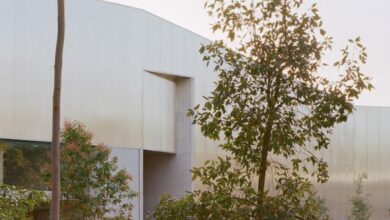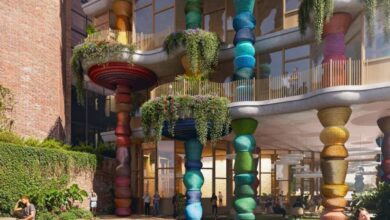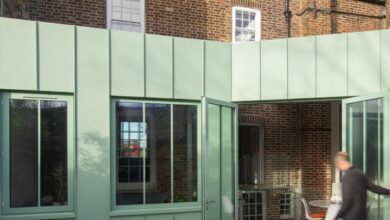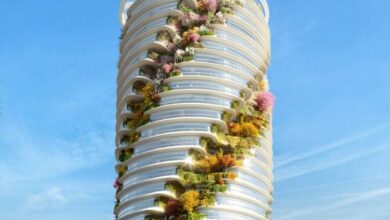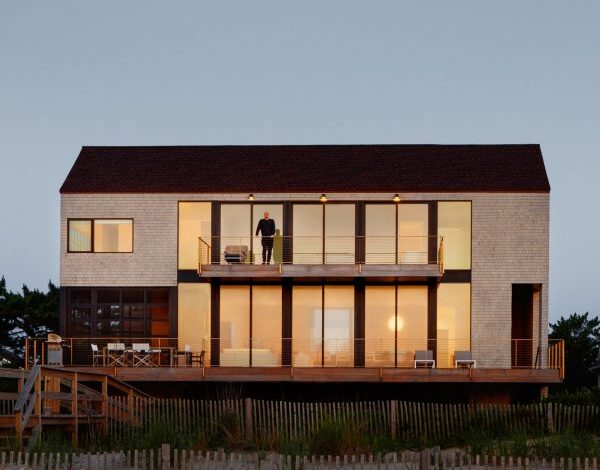
Robert Gurney clads gabled Delaware house with cedar shingles
[ad_1]
US studio Robert Gurney Architect has completed a beachfront house in Delaware consisting of “simple and pure forms” wrapped in white cedar, salvaged barn wood and fibre-cement panels.
Named after the community where it is located, the Cotton Patch Hills House sits on an oceanfront site in Bethany Beach, Delaware.
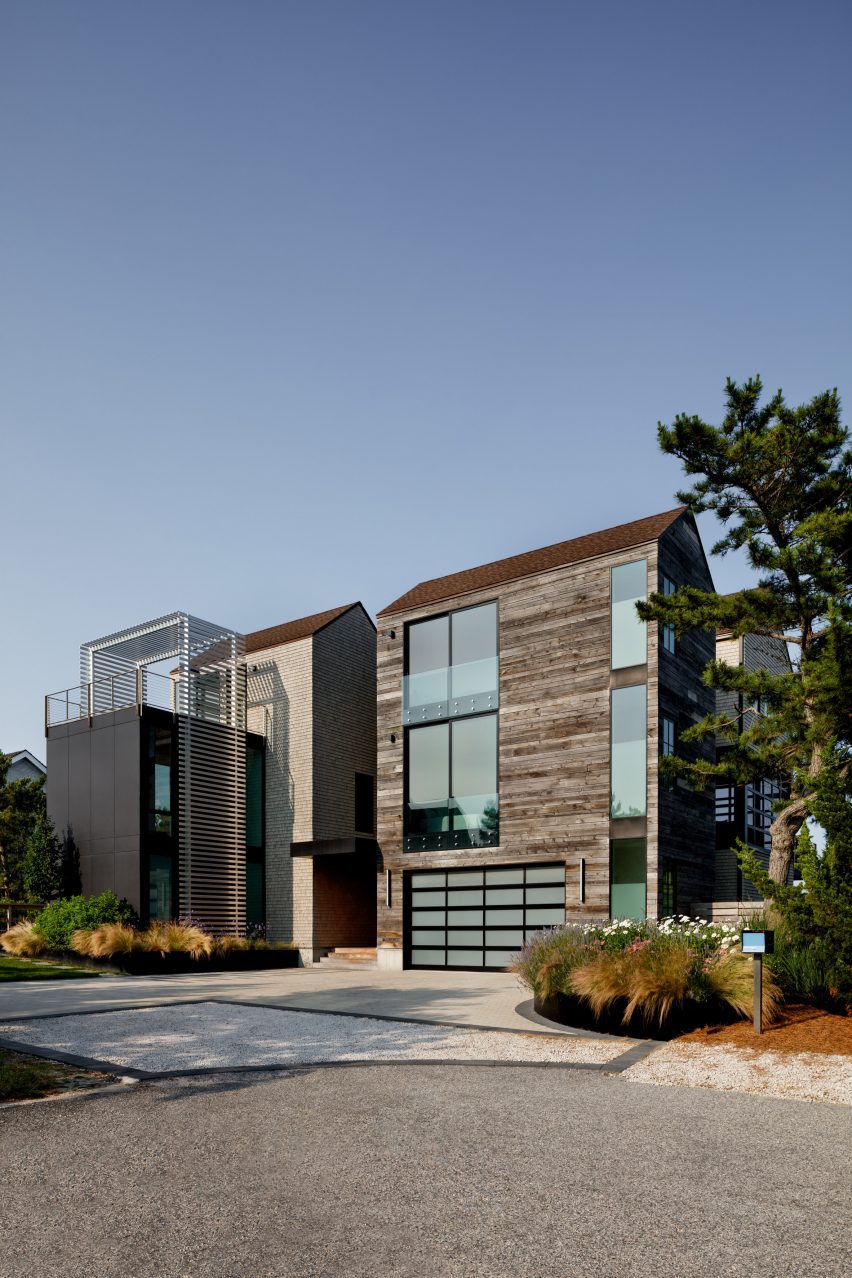
Robert Gurney Architect, a studio based in Washington DC, took cues from the local vernacular to conceive a holiday home for an empty-nester couple.
For a sandy site that faces the water, the team created a rectilinear, three-storey building that totals 5,842 square feet (542 square metres). The house acts as “a modern retreat” with an emphasis on views and indoor-outdoor living.
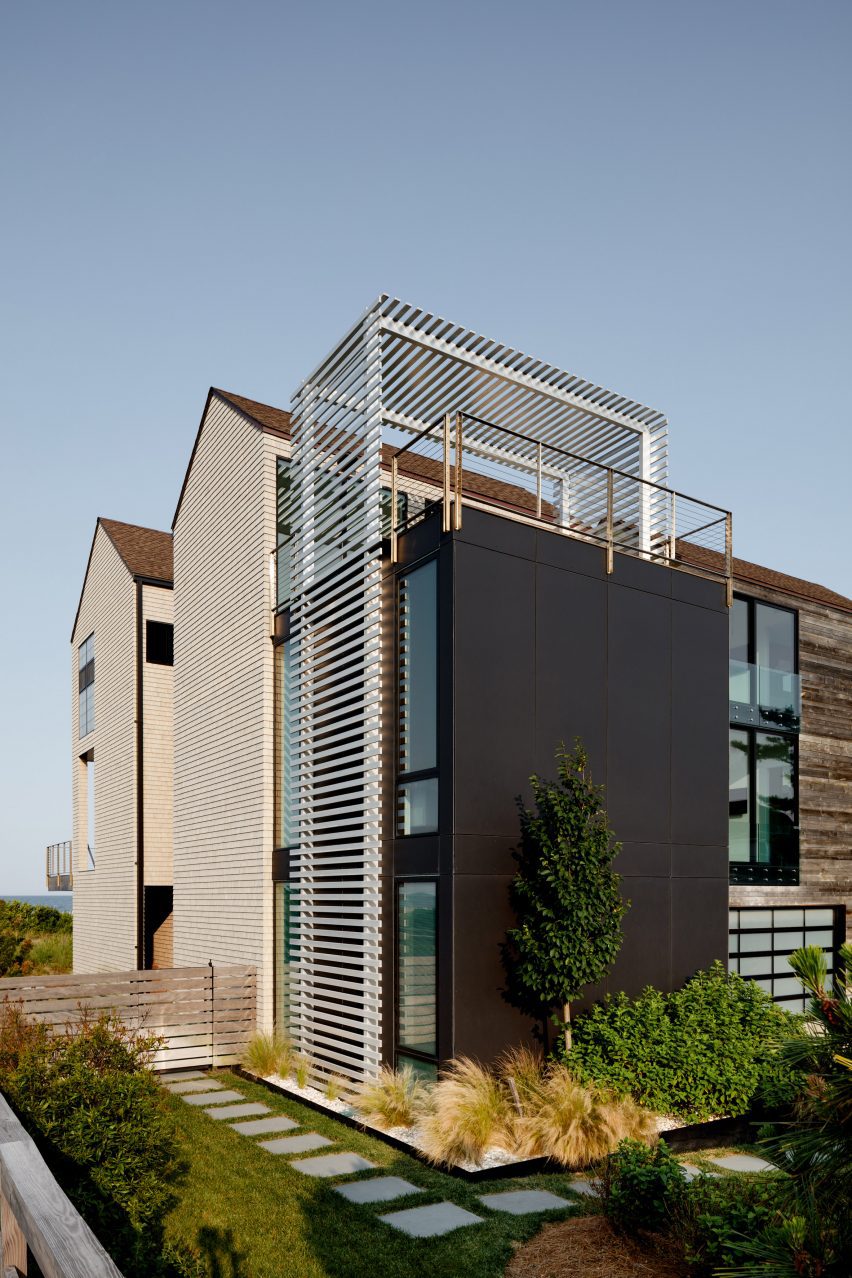
The building is divided into several gabled-roof volumes, with a glazed connector at the centre.
“The simple and pure forms are designed to respond to the program and site,” the team said.
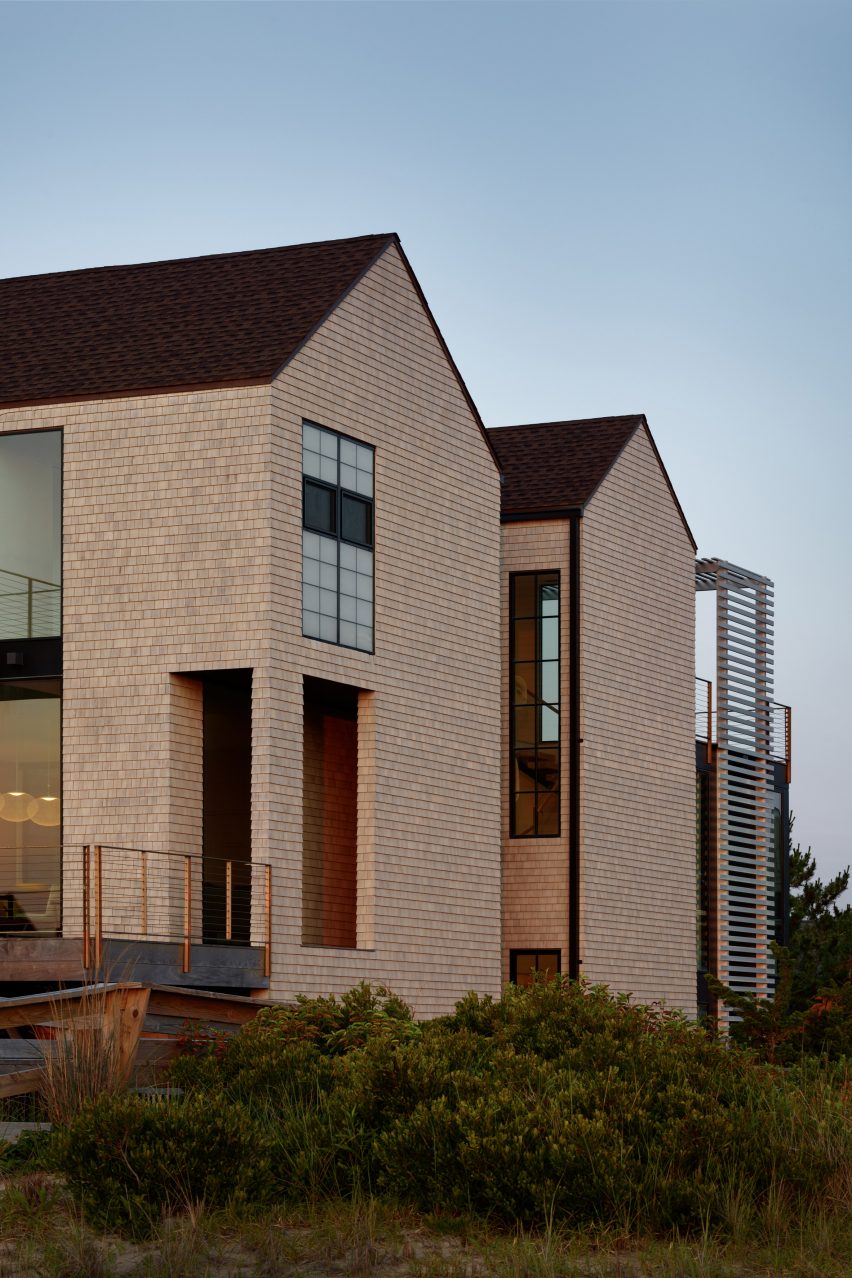
Along the street elevation, the team added a flat-roofed volume crowned with an aluminium trellis. A rooftop terrace in this volume serves as “a stage to view the sun setting on the western bay”.
Facades are clad in white cedar shingles that are expected to weather over time, along with salvaged wood from a Delaware barn. The volume with the trellis is wrapped in dark-toned fibre-cement panels.
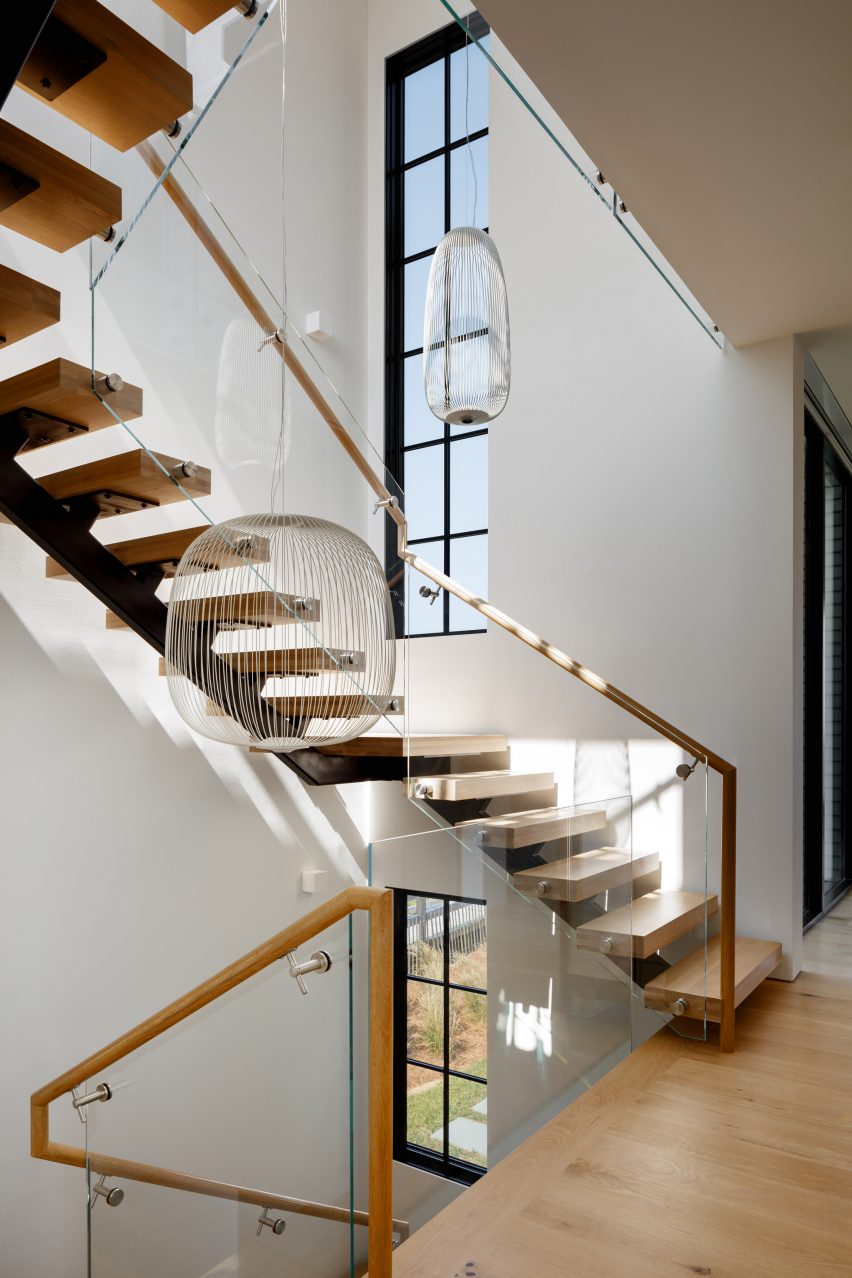
“These materials are intended to be durable and sustainable,” the team said of the exterior cladding.
Inside, there is a mix of public and private areas spread across the three levels.
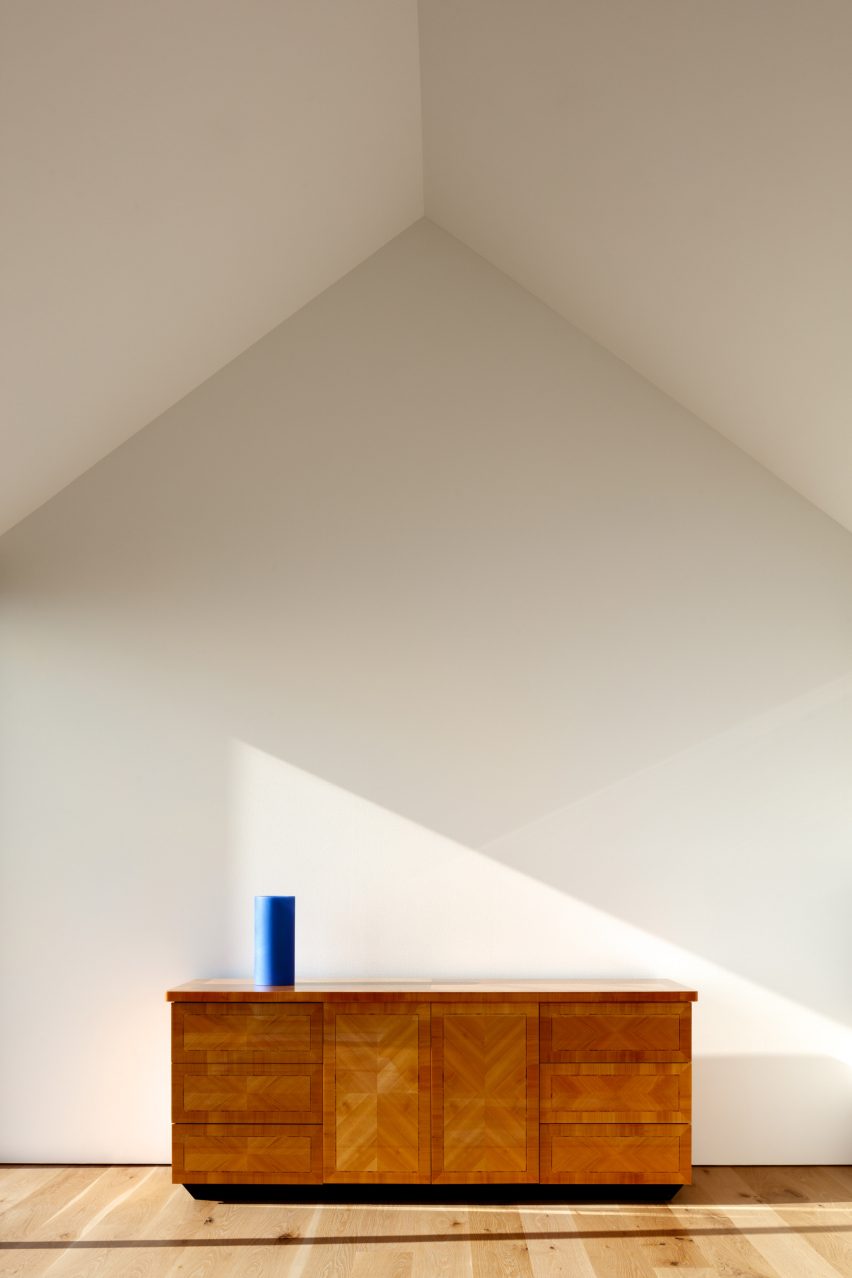
The ground level contains a garage, storage space, gym, bathroom and small kitchen. On the first floor, one finds the main communal zone, a media space and a bedroom suite.
The top level holds several additional bedrooms and a laundry room.
The interior features earthy finishes such as white oak flooring and salvaged-wood wall panels. The staircase is made of white oak and steel.
In the kitchen, there is white oak cabinetry and quartz countertops. A central fireplace has a surround made of hot-rolled steel.
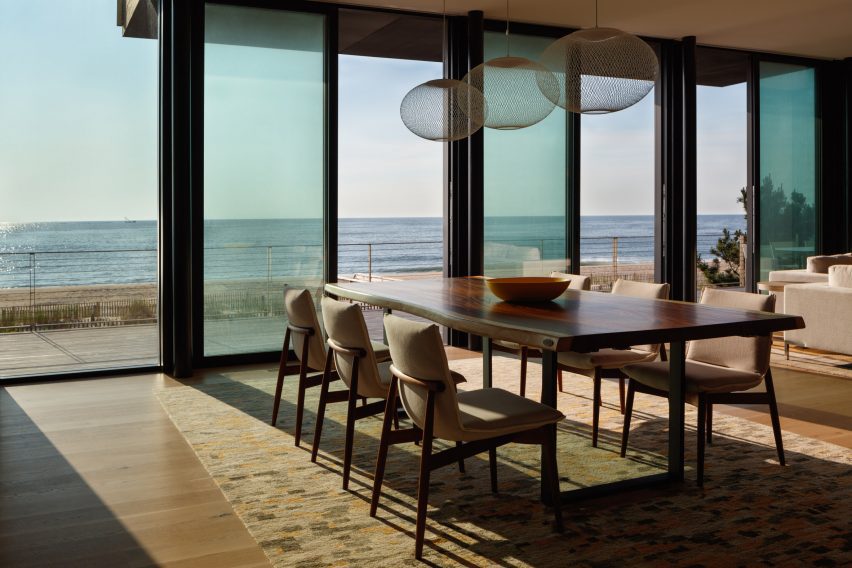
Ample glazing helps immerse the occupants in the coastal landscape.
“Large expanses of glass erase the boundary between interior and exterior, while curating moments of light and shadow on the white wall planes,” the team said.
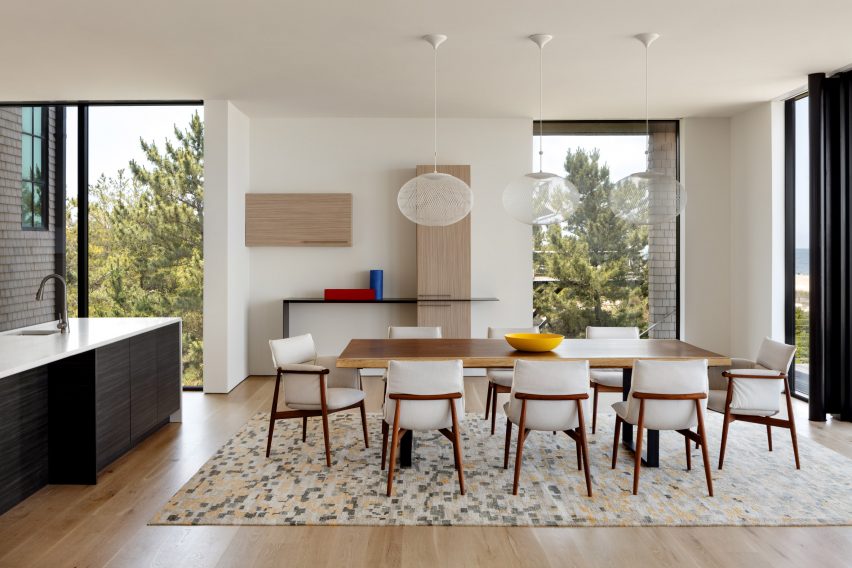
Other projects by Robert Gurney include a suburban house near the US capital that was designed for a young professional who wanted a low-upkeep home that could accommodate more occupants in the future, and a family home in Maryland that consists of overlapping volumes clad in stone, wood, fibre cement and glass.
The photography is by Jennifer Hughes.
Project credits:
Architect: Robert Gurney Architect
Architecture team: Robert M Gurney, Claire Andreas (project architect)
Structural engineer: Matteo Cobb Collective
Interior design: Jodi Macklin Interior Design
Landscape architect: Travis Wierengo, Topio Landscape Architecture
[ad_2]


